Search Results
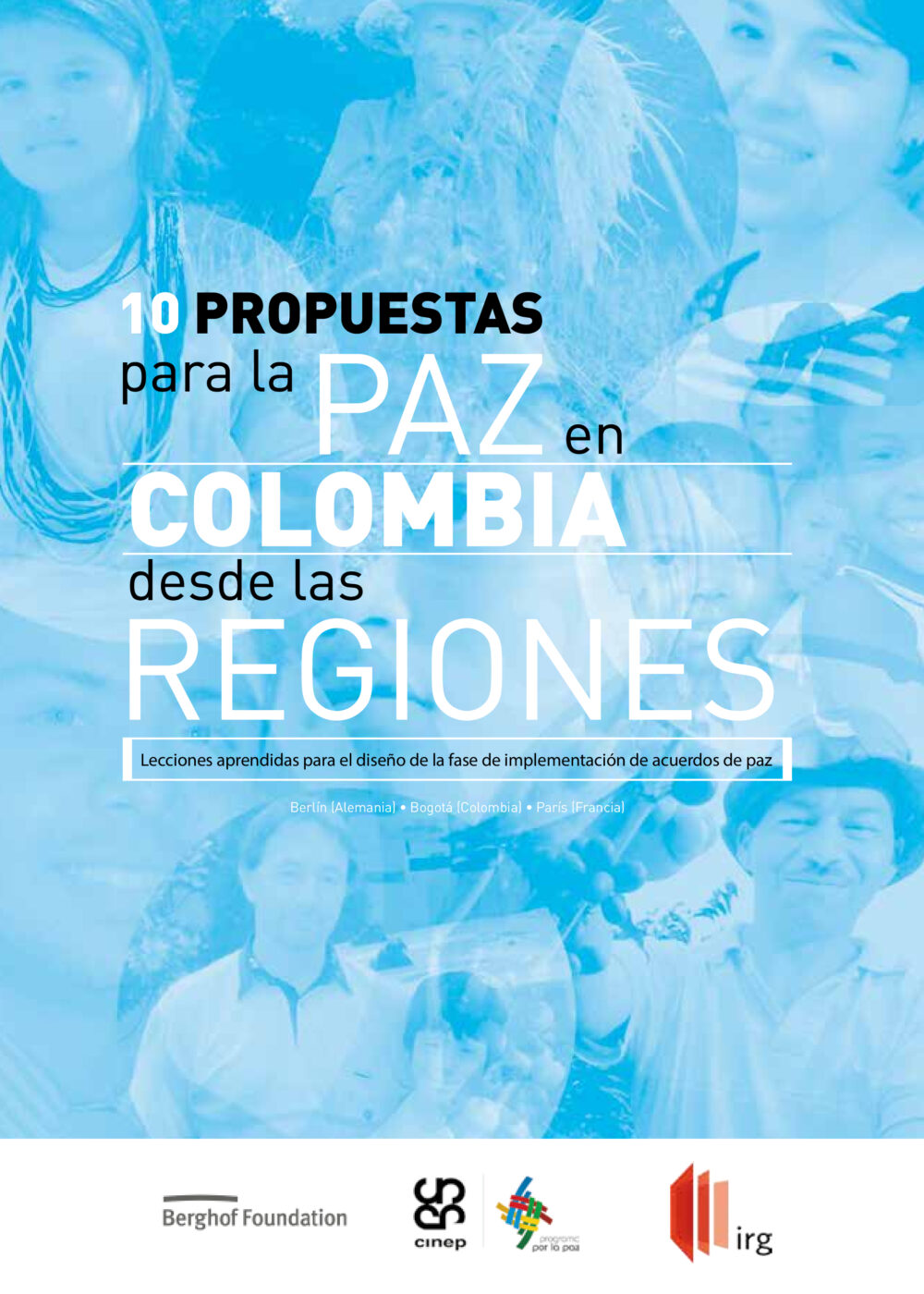
Diez Propuestas para la paz en Colombia desde la regiones
- Year 2014
- Author(s) Barbara Unger, Claire Launay-Gama, Mauricio García Durán
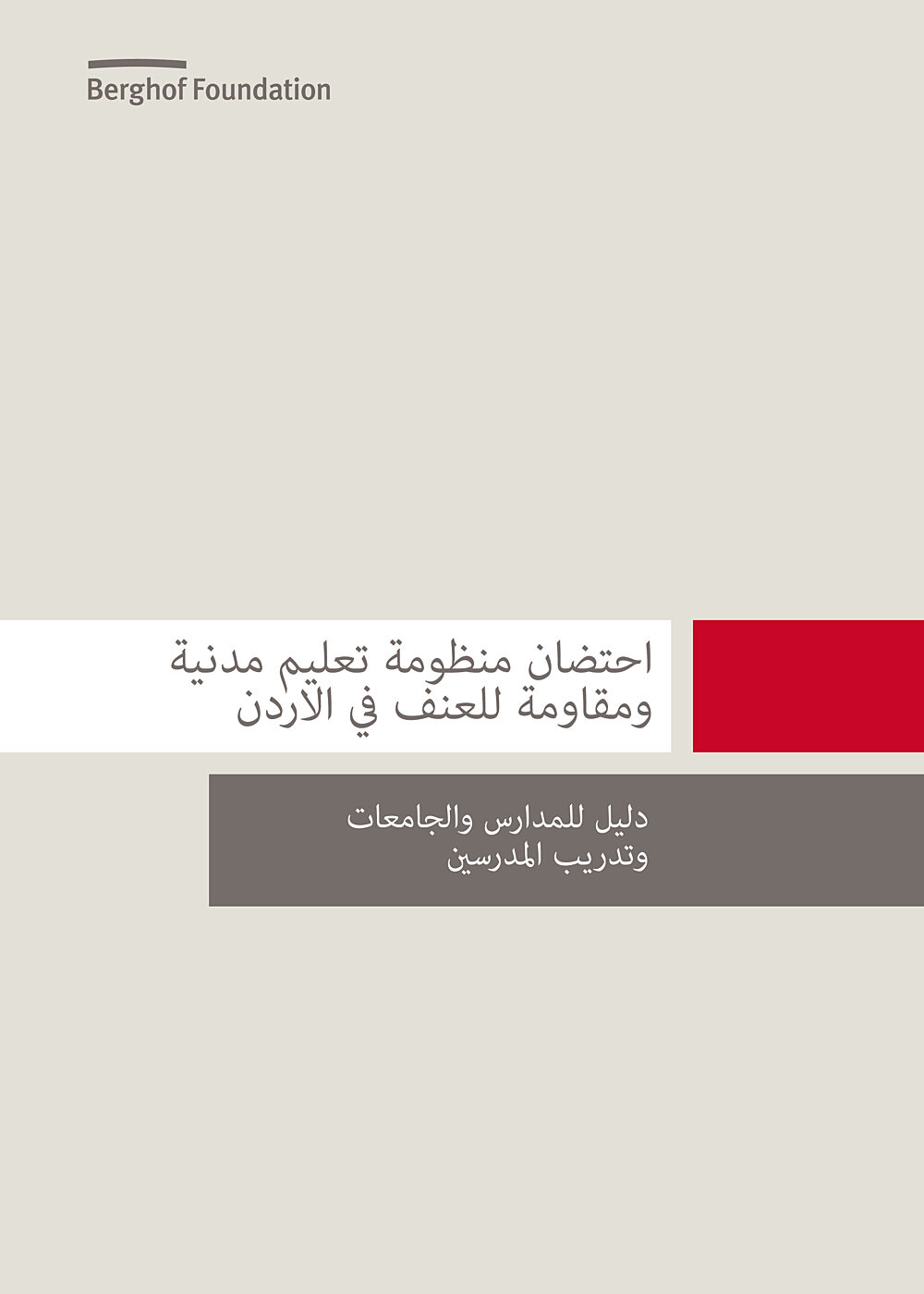
احتضان منظومة تعليم مدنية ومقاومة للعنف في الاردندليل للمدارس والجامعات وتدريب المدرسين
هذا الدليل من شأنه أن يدمج بين السبل الأساسية للتربية المدنية في الأردن والخبرات والدراسات العالمية حول التربية اللاعنفية والتربية على السلام والوقاية من العنف. يتألف الدليل من ثلاث وحدات لها أهداف تتعلق بالمضمون وأسس منهجية مختلفة، وهي تشمل: القصّ المرئي والمسرح التفاعلي وكرة قدم الشوارع للتسامح. وهو مصمم للتطبيق في المدارس والجامعات وأيضًا لعمل الشباب التطوعي في مخيمات اللاجئين مثلاً. هذا الدليل مدعم بالملصقات والأفلام التعليمية، بالإضافة إلى دراسة حول العنف فيالجامعات في الأردن.
- Year 2014
- Author(s) Uli Jäger, Anne Romund, Hannah Reich
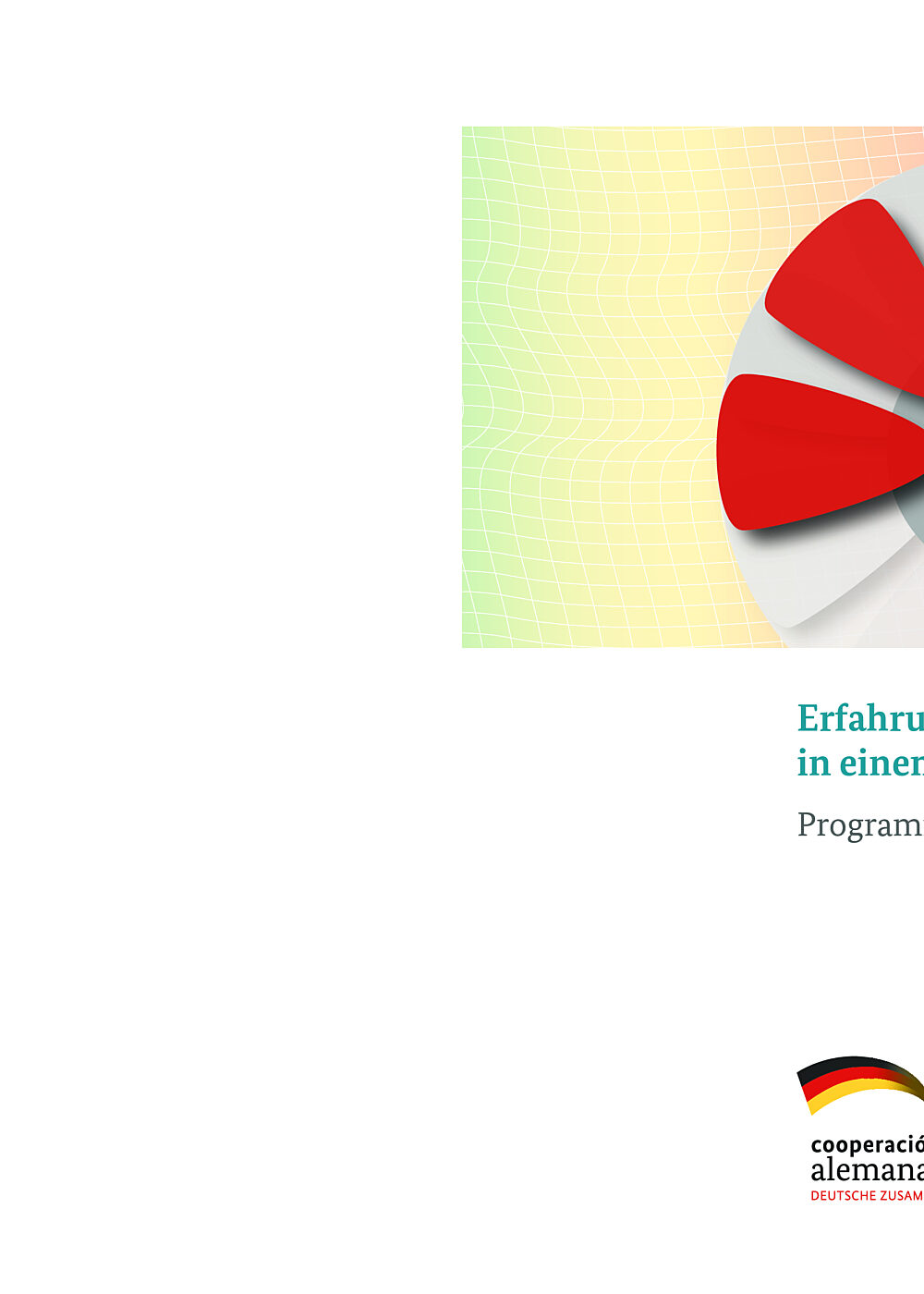
Erfahrungen zu Steuerung und Führung in einem FriedensentwicklungsvorhabenProgramm Cercapaz 2007 – 2015 / Kolumbien
„Wenn wir die Zeit zurückdrehen könnten, was würden wir mit unserem heutigen Erfahrungsschatz anders machen?“ „In acht Jahren (2007-2015) wurden im Programm Cercapaz knapp 30 Millionen Euro umgesetzt. Welche Potenziale wurden genutzt und welche hätten wir noch besser nutzen können?“ Diese und ähnliche Fragen stellen sich Beteiligte des Programms Cercapaz in dessen Schlussphase. Auch wenn es das deutsch-kolumbianische Friedensprogramm Cercapaz in dieser Form nicht mehr geben wird, können jedoch ähnliche Vorhaben aus den Erfahrungen lernen, indem sie gute Ansätze übernehmen und Fehler vermeiden - und somit die Chance erhöhen, mit den ihnen zur Verfügung stehenden Mitteln möglichst viel positive Veränderung zu erreichen. Die GIZ hat den Anspruch, eine lernende Organisation zu sein. Dieses Dokument soll einen Beitrag dazu leisten, indem es Impulse zur Reflexion und Diskussion gibt.
- Year 2015
- Author(s) Uta Giebel, Barbara Unger
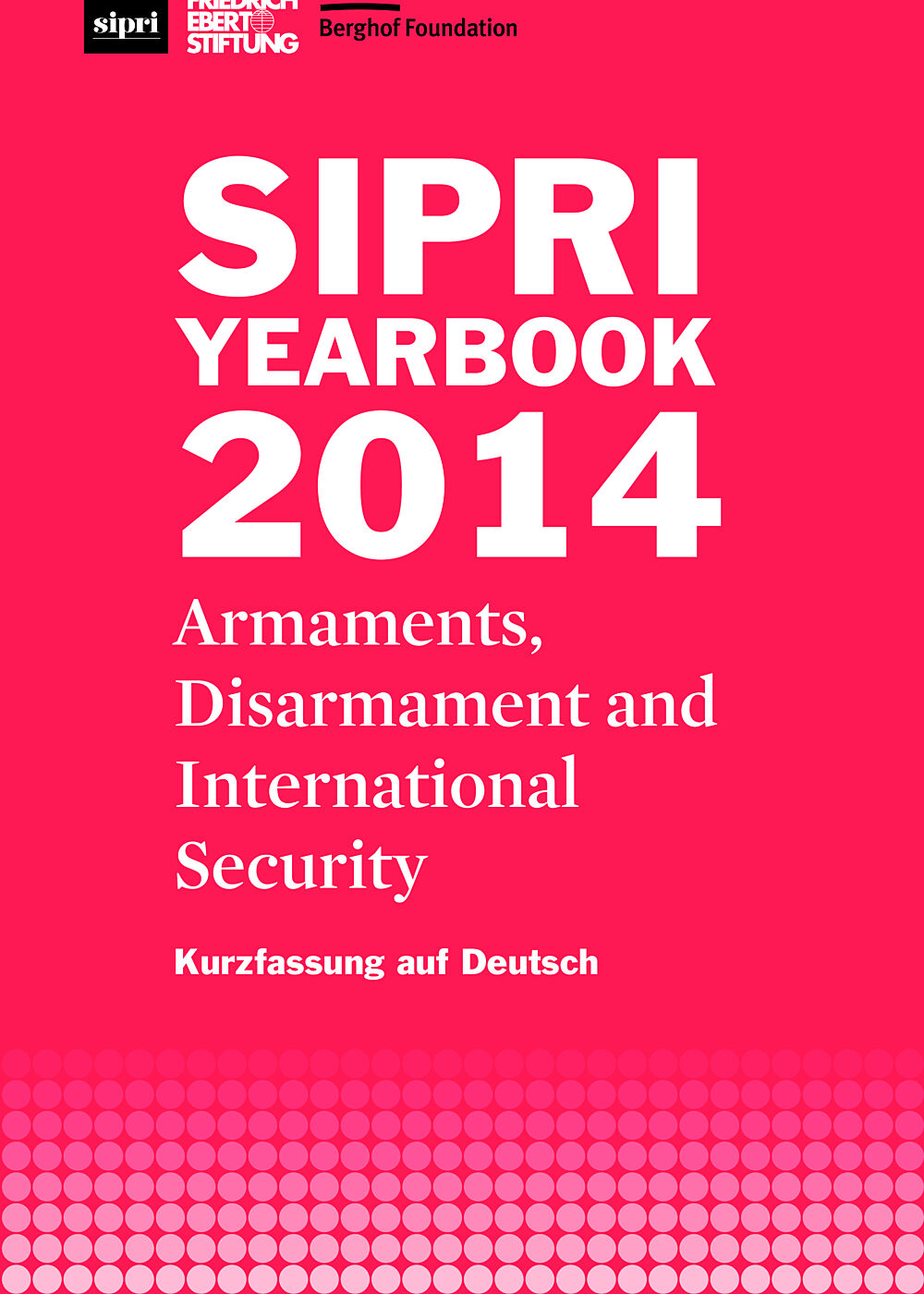
SIPRI Yearbook 2014Armaments, Disarmaments and International Security (Kurzfassung auf Deutsch)
Das SIPRI Yearbook 2014 ist eine Zusammenstellung von Originaldaten aus den Bereichen globale Militärausgaben, internationale Rüstungstransfers, Rüstungsproduktion, Atomstreitkräfte, bewaffnete Konflikte und multilaterale Friedenseinsätze sowie von neuesten Analysen wichtiger Aspekte der Rüstungskontrolle, des Friedens und der internationalen Sicherheit. Das SIPRI-Jahrbuch, das erstmals 1969 erschienen ist, wird von SIPRI-Forschern und eingeladenen externen Experten verfasst. Diese Broschüre fasst die Inhalte des SIPRI Yearbook 2014 zusammen und enthält eine Auswahl an Daten und Informationen aus dem Jahrbuch.
- Year 2014
- Author(s) Stockholm International Peace Research Institute (SIPRI)
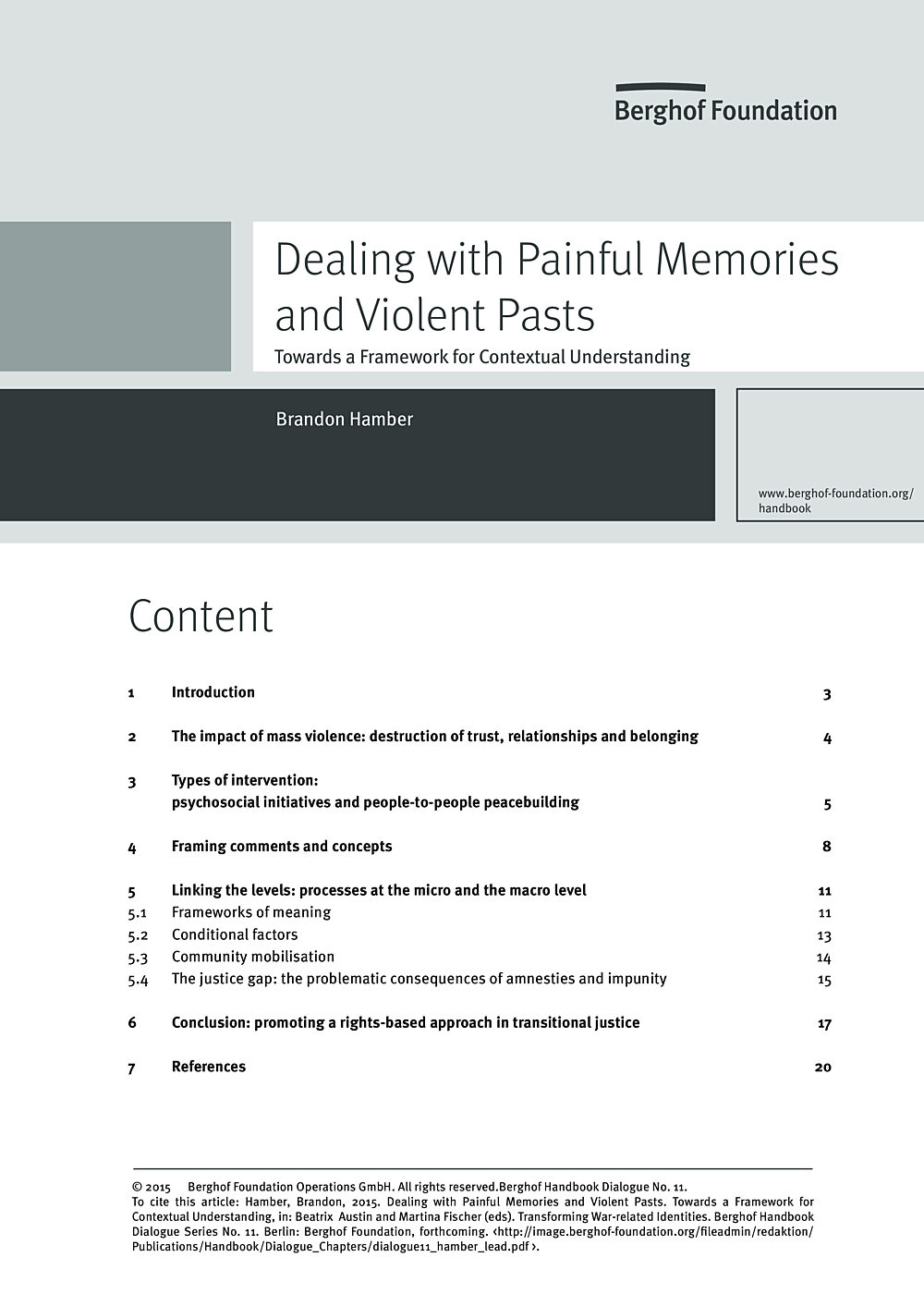
Dealing with Painful Memories and Violent Pasts. Towards a Framework for Contextual UnderstandingHandbook Dialogue Series No. 11 - lead article
Reflects on the role of different approaches for dealing with painful memories and violent pasts. The author explores how different dimensions – interpersonal and intergroup relations, memories and identities at the individual and collective level – relate to one another. He also addresses how one can constructively address victim identities and cultures of victimhood that may stem from painful or traumatic experiences in light of his work in South Africa and Northern Ireland, among other locales.
- Year 2015
- Author(s) Brandon Hamber
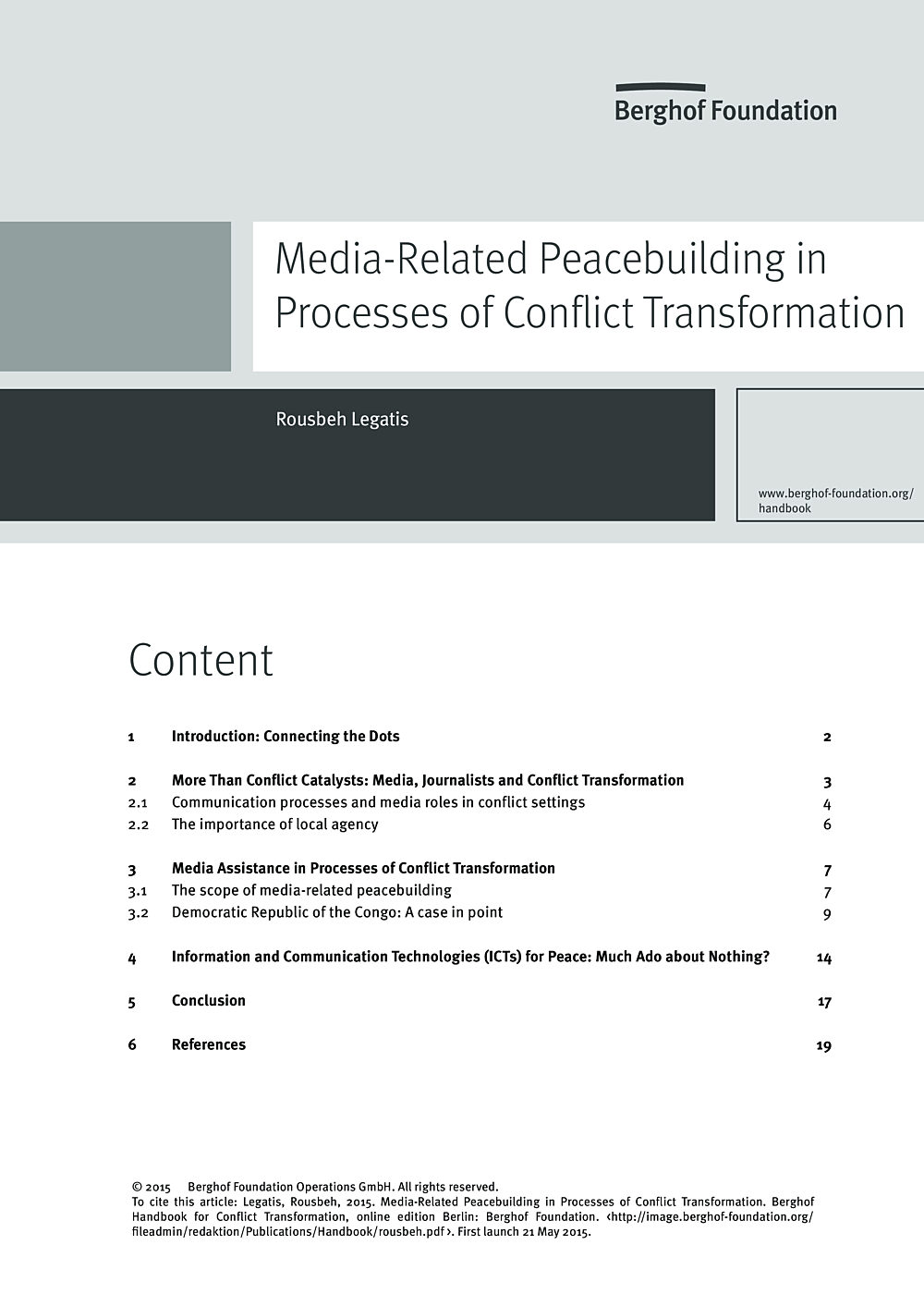
Media-Related Peacebuilding in Processes of Conflict TransformationHandbook Article
Focusing on their constructive potential, the author contextualises the work of media and journalists as actors in peacebuilding processes. He draws on examples from the DRC and Sudan, and discusses the added value of new technologies, in reflecting on how peacebuilding processes can be opened up and made more inclusive - especially locally - by high-quality reporting.
- Year 2015
- Author(s) Rousbeh Legatis
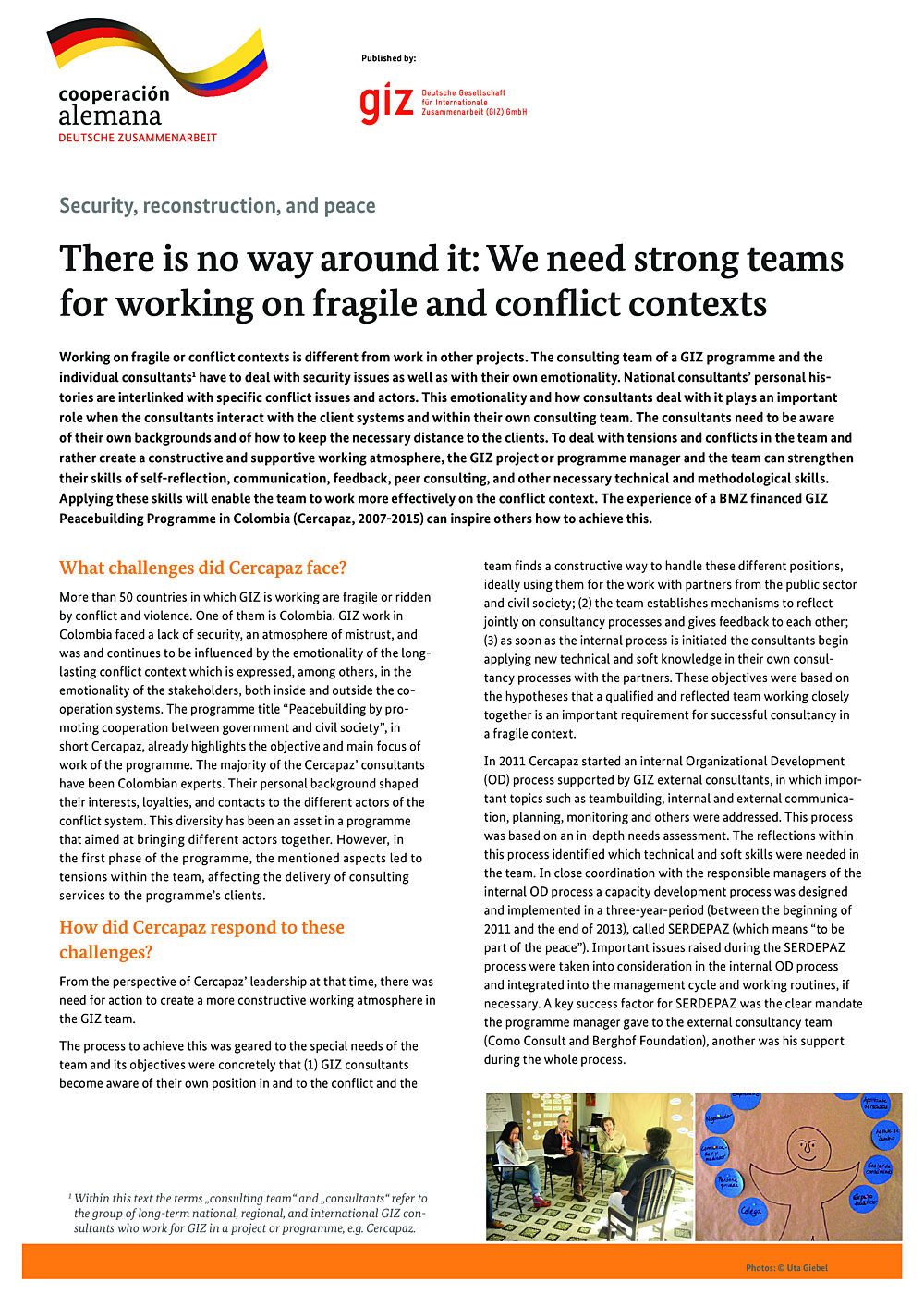
There is no way around itWe need strong teams for working on fragile and conflict contexts
Working on fragile or conflict contexts is different from work in other projects. The consulting team of a GIZ programme and the individual consultants have to deal with security issues as well as with their own emotionality. National consultants’ personal histories are interlinked with specific conflict issues and actors. This emotionality and how consultants deal with it plays an important role when the consultants interact with the client systems and within their own consulting team. The consultants need to be aware of their own backgrounds and of how to keep the necessary distance to the clients. To deal with tensions and conflicts in the team and rather create a constructive and supportive working atmosphere, the GIZ project or programme manager and the team can strengthen their skills of self-reflection, communication, feedback, peer consulting, and other necessary technical and methodological skills.
- Year 2015
- Author(s) Uta Giebel, Barbara Unger
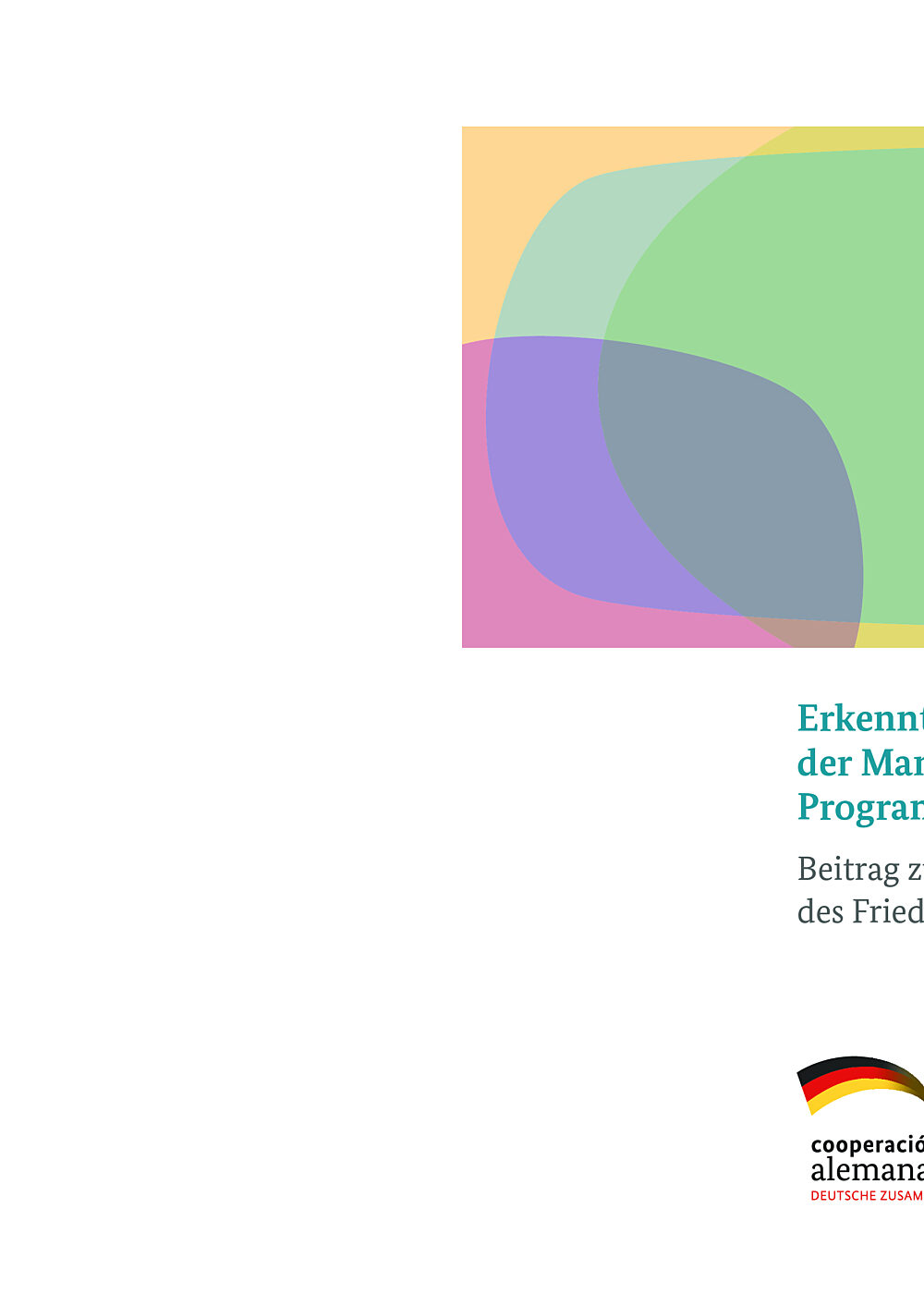
Erkenntnisse für die Entwicklung und Gestaltung der Management- und Steuerungsstruktur eines Programms der Technischen ZusammenarbeitBeitrag zur Systematisierung von Lernerfahrungen des Friedensprogramms Cercapaz
Das Friedensprogramm Cercapaz mit einer Laufzeit von 8 Jahren und 3 Monaten (2007-2015) wurde in 3 Phasen und pro Phase mit einer jeweils veränderten Management- und Steuerungsstruktur durchgeführt. Das Programm ist damit einen Lernweg gegangen, der es wert ist, ihn nicht nur auf der Ebene der fachlichen Lernerfahrungen zu systematisieren, sondern auch bezüglich der Entwicklung seiner Management- und Steuerungsstruktur. Die Ergebnisse dieses Dokuments basieren auf Interviews, einschlägigen Programmdokumenten sowie Fachliteratur. Die Unterscheidung zwischen Management- und Steuerungsstruktur wird entsprechend der „Landkarte der Logiken“ der GIZ.
- Year 2015
- Author(s) Elke Breckner, Uta Giebel
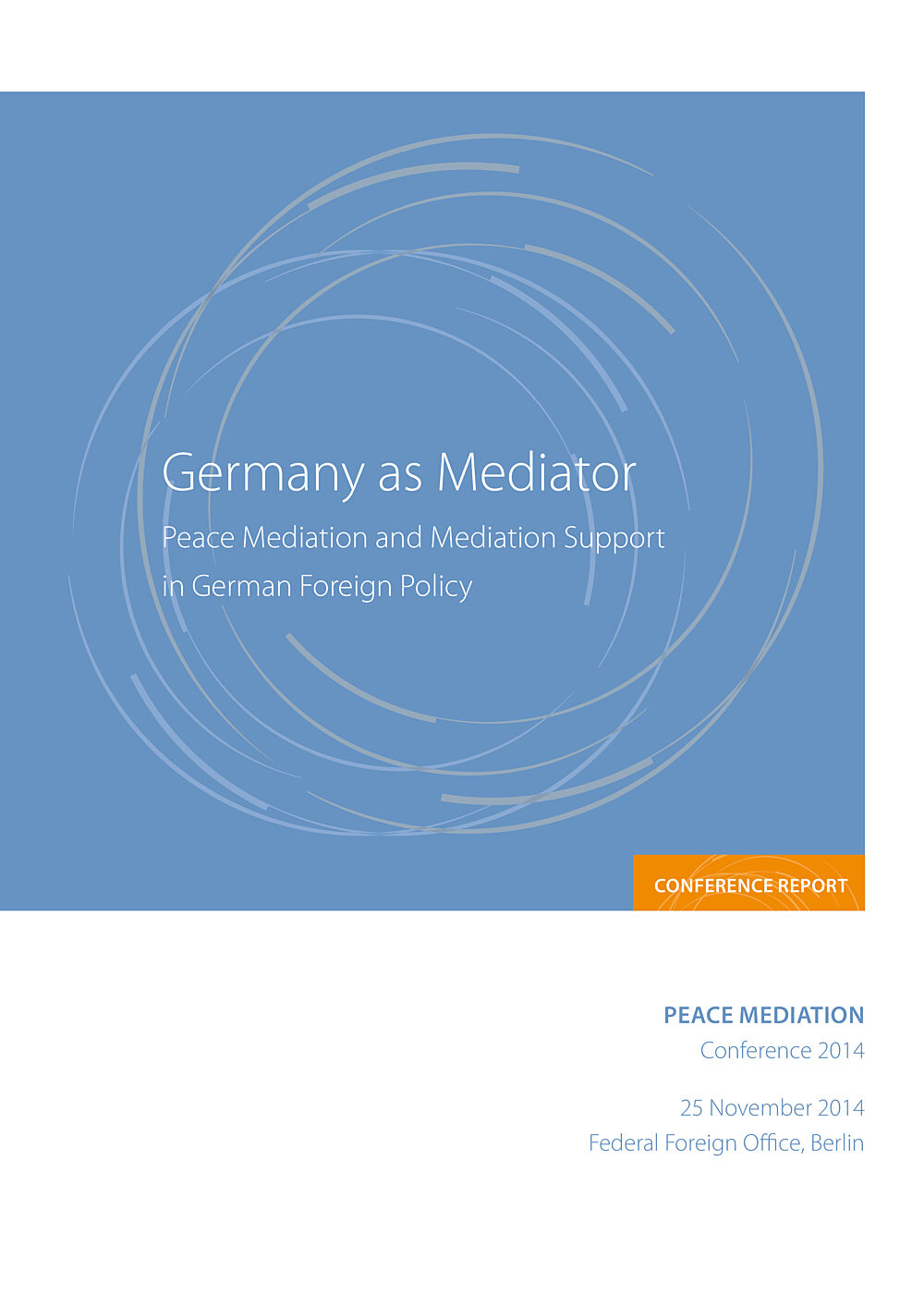
Germany as Mediator: Peace Mediation and Mediation Support in German Foreign PolicyConference Report
What are peace mediation and mediation support? What role can Germany play in this area? These questions were the focus of the 2014 Peace Mediation Conference, which brought together 200 policy-makers, staff from relevant ministries, Members of Parliament and representatives of organisations engaged in peace mediation. The aim was to increase Germany’s visibility and sharpen its profile as a conflict mediator in the foreign policy arena.
- Year 2015
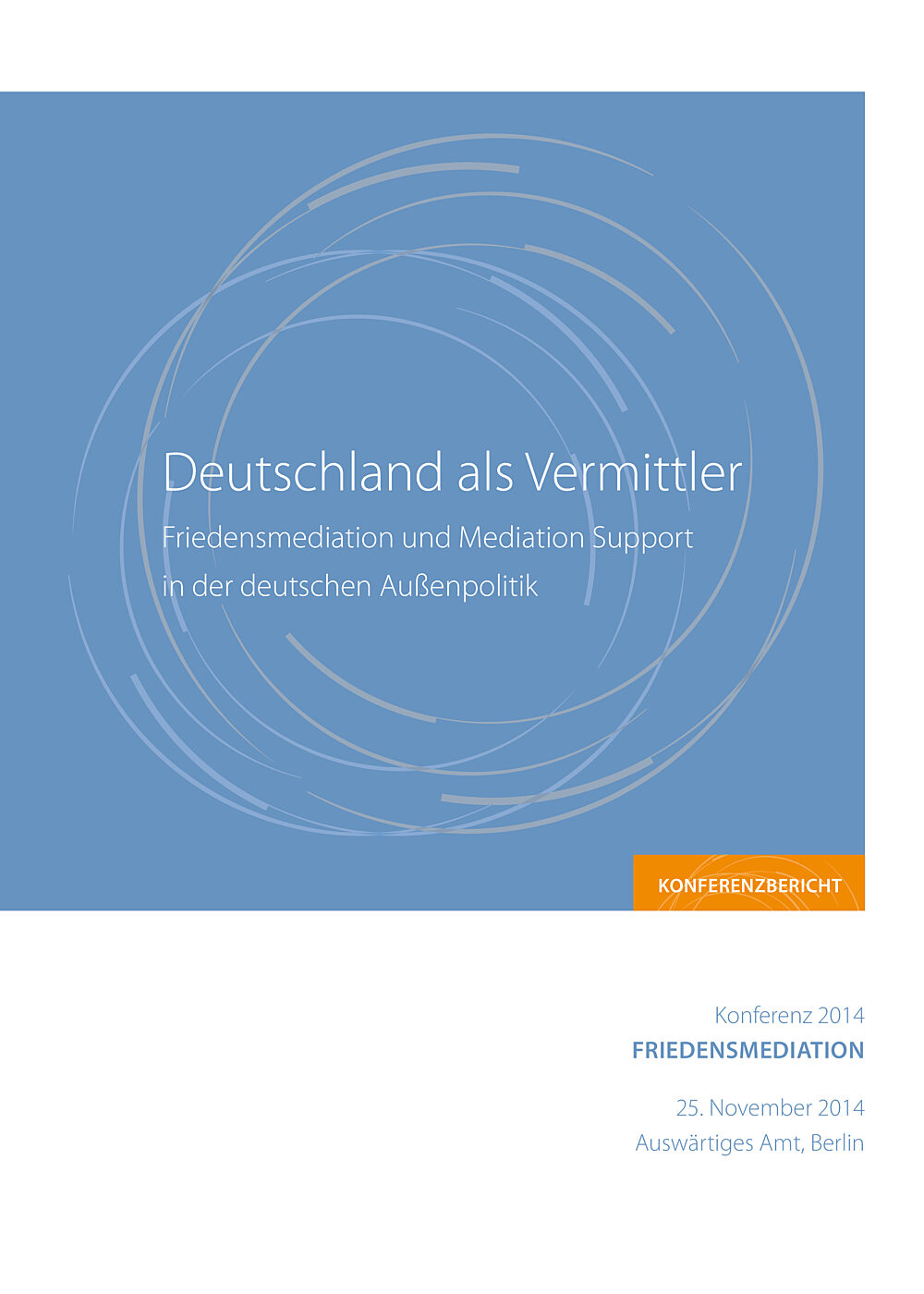
Deutschland als Vermittler: Friedensmediation und Mediation Support in der deutschen AußenpolitikKonferenzbericht
Was ist Friedensmediation und Mediation Support? Welche Rolle kann Deutschland in diesem Bereich spielen? Diese Fragen standen im Mittelpunkt der Konferenz Friedensmediation 2014. 200 politische Entscheidungsträger, Mitarbeiter relevanter Ministerien sowie Parlamentarier und Vertreter der im Bereich Friedensmediation tätigen Organisationen tauschten sich darüber aus. Ziel der Konferenz war es, das außenpolitische Profil Deutschlands als Konfliktvermittler sichtbar zu machen und weiter zu schärfen. Auf Basis einer gemeinsamen Bestandsaufnahme zum deutschen Engagement im Bereich der Friedensmediation erarbeiteten die deutschen und internationalen Experten Vorschläge, wie enger zusammengearbeitet und besser voneinander gelernt werden kann.
- Year 2015